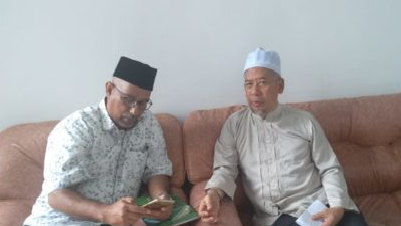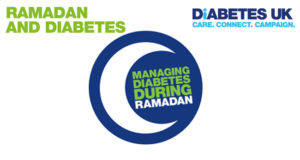Diabetes is a disease that affects many people in the world. According to the World Health Organization (WHO), the number of sufferers continues to increase year to year. Currently, it recorded at 422 million people in the world, four times more than 30 years ago.
Meanwhile, Indonesia ranks sixth most diabetics (10.3 million people) after China (114.4 million), India (72.9 million), United States (30.2 million), Brazil (12.5 million), and Mexico (12 million).
An Islamic health expert from Malaysia, Prof. Dr. Ab Aziz Al-Safi Ismail is currently actively campaigning for diabetes treatment to all corners of the world. On an occasion of Tablig Akbar event in Lampung, Sunday, MINA reporters managed to interview him. The following are the results of the interview:
MINA: How does Islam view human disease?
Also Read: Strengthening Bridges of Friendship and Cooperation between Indonesia and African Countries
Prof. Ab Aziz: In a few verses of Al-Quran, it is mentioned how humans should maintain health. Islam puts forward precautionary measures rather than treatment. For example, in Surah Al-Baqarah verse 168 instructs that eating food must be halal and thayib.
MINA: What about the story of the age of Prophet’s companions?
Prof. Ab Aziz: Companion of the Prophet, Ali bin Abi Talib was once questioned by a Jews. “How many verses of Al-Quran talk about health?” Then, he answered there was no need for a verse, enough half the verses of Al-Quran had been able to answer all health problems. (then, Ali recited surah Al-Baqarah verse 168).
MINA: For diabetes itself, how does Islam provide a solution?
Prof. Ab Aziz: To prevent and treat diabetes as a whole, Islam provides a solution for that. From some of the studies that we have studied, there are nine Islamic steps that need to be carried out by patients.
MINA: What are the nine things?
Prof. Ab Aziz: First Fasting, with fasting, our organs, pancreas, can rest at work. This causes the pancreas to produce maximum enzymes.
Ramadan fasting is very helpful for patients in healing their diseases. Therefore, Ramadan for the Islamic ummah must be maximized to take lessons, blessings, and benefits from it.
Also Read: Interview with Pakistani Ambassador to Indonesia: Kashmir Solidarity Day
After Ramadhan, patients can get used to continuing fasting with at least twice a week. Well, our Prophet gave an example of fasting Monday and Thursday.
Second, cupping. Cupping properly with medical rules and sharia could expenditure of dirty blood and the release of toxins (detoxification) runs optimally. Cupping is the main thing to do, but this must be followed by other steps.
Third, maintain a diet. As ordered in Al-Quran to eat when hungry and stop before full. Eating with halal and thayib (good) foods. Well, especially for diabetics, eat less animal protein.
Fourth, it’s still about eating, which is reducing carbohydrate consumption. Foods that contain high carbohydrates such as rice need to be limited. If possible, you can eat foods sourced from wheat because it is low in carbohydrates.
Also Read: Ambassador: Many Opportunities on Relationship Between Indonesia-UAE
Fifth, excercises. At least twice a week should exercise regularly. If our body sweat regularly, it also helps cure diseases, especially diabetes.
Sixth, consume honey. In Al-Quran honey is very good for the human body, helps the body’s resistance to disease, it also helps optimizing the performance of vital organs in the body, especially digestion.
Seventh, consume pineapple but avoid grapes.
Eighth, Habbatus Sauda consumption, this also helps cure all diseases, including Diabetes.
Also Read: Exclusive Interview with Indonesian Ambassador to Afghanistan
Ninth, reduce the frequency of eating. Usually, we Indonesians or Malaysians are accustomed to eating three to four times a day. For people with diabetes, their diet is twice a day.
MINA: Can non-Muslim patients do the same thing?
Prof. Ab Aziz: Yes, they can, just fasting, they can do it by way of getting up early with not eating breakfast, until later in the afternoon or afternoon you should just eat. The duration of fasting is only about 12 to 13 hours. So, the meal schedule can be arranged.
MINA: What about the fasting of people living in sub-tropical regions, their fasting is longer, is it annoying?
Also Read: Taliban Needs Time for Women’s Issue, Says Indonesian Ambassador
Prof. Ab Aziz: Oh no, medically, the human body is able to survive without food and drink for 36 hours, as long as the length of fasting do not reach that long, right. God willing, it is not a matter of fasting like Muslim. (TW/Sj/R04)
Mi’raj News Agency (MINA)

































 Mina Indonesia
Mina Indonesia Mina Arabic
Mina Arabic